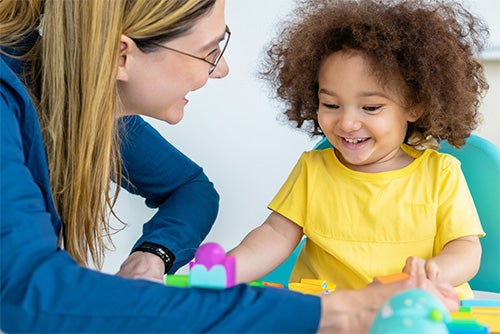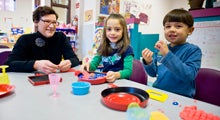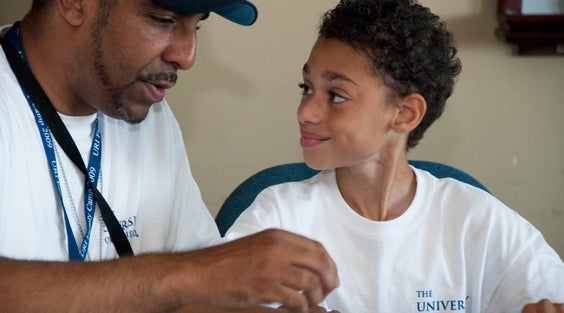Even in our rapidly changing times, the human life cycle remains constant—each phase of life with its own challenges and opportunities. Human Development and Family Science (HDF) examines this amazing process.
As an HDF major at URI, you study the science of caring. You learn how people grow, develop, and change over time—and how family relationships impact human development. You discover strategies that promote healthy development across the lifespan. You engage in fieldwork experiences in a variety of human service settings. And, whether your focus is on children, families, adolescents, or older adults, URI’s HDF program will prepare you for meaningful professional work in the human services, providing you with the knowledge and skills you need to enhance the quality of life in individuals, families, and communities.






